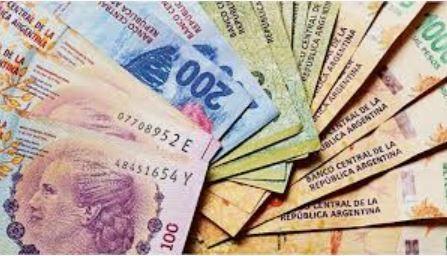Today was known the inflation data of the month of February which was 4.7%. It is the highest data since March 2021 when it was placed at 4.8%. If we do a detailed analysis of the index, we observe that core inflation was 4.5% and that of 3.1% regulated. The most worrying data was that of food and beverages located in 7.5% affecting the sectors of smaller incomes.
Today, the government of Alberto Fernández accumulates an inflation of 131,36 %. The data of 36% of 2020 seems to be an outlier of management; in 2021 it was 51% and in 2022 the market estimates inflation between 50% and 60%. The 2020 data is mainly explained by the stop of the economy caused by lockdown. Once the economy opened, prices began to express themselves.
Inflation in the first quarter of the year accumulates 8.78%, and the panorama for the coming months is even worse. It is important to note that in the coming months we will see reflected in the index the impact of tariff adjustment, 11% increases in fuels and, not less, the impact of the increase in raw materials by the international context of the war between Ukraine and Russia, mainly in wheat and soy.
 With regard to change, the government changed its 2021 crawling peg performance by bringing current devaluation to 3% monthly. During 2022, daily devaluation was performed between 30% and 40% nominal annualized. The implied rates of devaluation in the Rofex market are on average 43% and 46% in the short and long part of the curve, respectively. This means that an appreciation of the exchange rate is "improved", since the inflation expected by the market is greater than the devaluation in future contracts.
With regard to change, the government changed its 2021 crawling peg performance by bringing current devaluation to 3% monthly. During 2022, daily devaluation was performed between 30% and 40% nominal annualized. The implied rates of devaluation in the Rofex market are on average 43% and 46% in the short and long part of the curve, respectively. This means that an appreciation of the exchange rate is "improved", since the inflation expected by the market is greater than the devaluation in future contracts.
Mentioned this, the government can hardly maintain the exchange rate policy of monthly devaluation around 3% given inflationary acceleration. If the government decides to keep crawling peg in these values, the real exchange rate will be too late and will become uncompetitive. International inflation was helping Argentina keep the TCR stable, but if inflation is consolidated at current levels, the government will not be able to continue with the current exchange scheme and will have to change devaluation rates.
An investment idea in Fija Income
With the acceleration of inflation, an investor could opt for instruments attached to the CER (Conference Stabilization coefficient). The short part of the curve looks expensive in terms of performance, especially T2X2 (CER -4%), TC23 (CER -1.52%) and TX23 (CER -1.32%). To find positive income the investor has to prolong duration going to the TX24 (CER + 0.4%) or to the TX26 (CER + 2.66%).The problem of this strategy arises if the curve suffers a correction: Longer bonds are more sensitive to price changes, since they decontaminate more funds flows. As a result, the T2X3 seems attractive ridiculing CER -0.09% and its maturity is in August 2023.
This type of bonds has a high demand on the market in the face of rising inflation expectations, and its volume in common investment funds has grown exponentially during the last period. In addition, they gained a lot of ground to linked dollar titles whose adjustment is given by the variation of the official exchange rate.
The following is confirmed: The market expects an appreciation of the Argentine weight, since the estimated inflation would be higher at the rate of devaluation. Despite the obligations of the short part of the expensive lightcan curve, they are a good alternative of coverage against inflation that seems to be uncontrollable.
As an alternative to exchange coverage, the mep dollar decreased significantly in recent weeks after the peak of $220 at the end of January. Today it closed to $194 and could be a good buy option. It is necessary to take into account that in order to access this instrument it is necessary to have an account in a stock exchange society and not to have bought dollar solidarity for 90 days.
Sources:Indec, Rava, Abbaco,Bloomberg



Comments